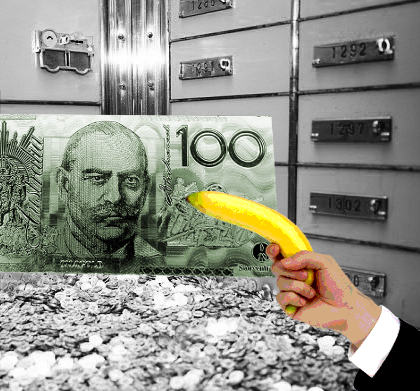Safe bet becomes less so post-GFC

Dr David Willis, from the Queensland University of Technology Business School, said with bond yields and inflation low, they now held as much risk as stocks.
Typically considered one of the safest investment options, Commonwealth bonds make up a large part of many Australian managed funds and superannuation portfolios.
“Traditionally bonds have had a safe and cushioning effect on portfolios when finance crisis and recession hit, as they are a reliable part of a diversified portfolio that also includes shares, corporate bonds and property,” Dr Willis said.
“As the stock market crashes in a crisis and house prices fall, bonds have tended to be positive. But post-GFC this is no longer the case. With bond yields so low and inflation low, there is now a real chance of bonds decreasing in value and a substantial capital loss. This is called a negative skew.
“This makes bonds a similar risk to a stock and hence investors should be taking a fresh look at their portfolios.
“Both have a yield or dividend and both have a capital gain component but until now bonds have had only a limited capital loss. This is now not the case,” he said.
Dr Willis says two economic factors could see capital loss on bonds.
“One is the restarting of inflation and the other higher interest rates,” he said.
“With both presently historically low it wouldn't be silly to assume that there is more upside in these two indicators than downside. If they both rise together a substantial loss will occur that has not occurred before in the Commonwealth Government bonds market.
“For example, if a 10-year government bond is paying a yield of 1 per cent and interest rates rise by a quarter of a per cent, this is an increase of about 20 per cent on that 1 per cent.
“Managed funds and super funds that are chasing a larger yield sell their old bond at 1 per cent yield to buy the same bond at 1.25 per cent yield.
“The problem is this affects the price of the bond they are selling on the secondary market. So a $1000 bond, for example, could fall to $800, meaning a capital loss of $200.
“This then totally wipes out any yield and produces a loss of stock market crash proportions and we are only talking about a small increase.
“If inflation rises, as oil prices rise, then this will have a similar effect. As interest rates and inflation rise, which they surely will, then the capital loss will deepen further.
“In light of this, now may be the time to start reassessing bonds as a safe haven as it can be argued they are no longer in a world of low to negative interest rates, quantitative easing and low to negative inflation.”








 Print
Print